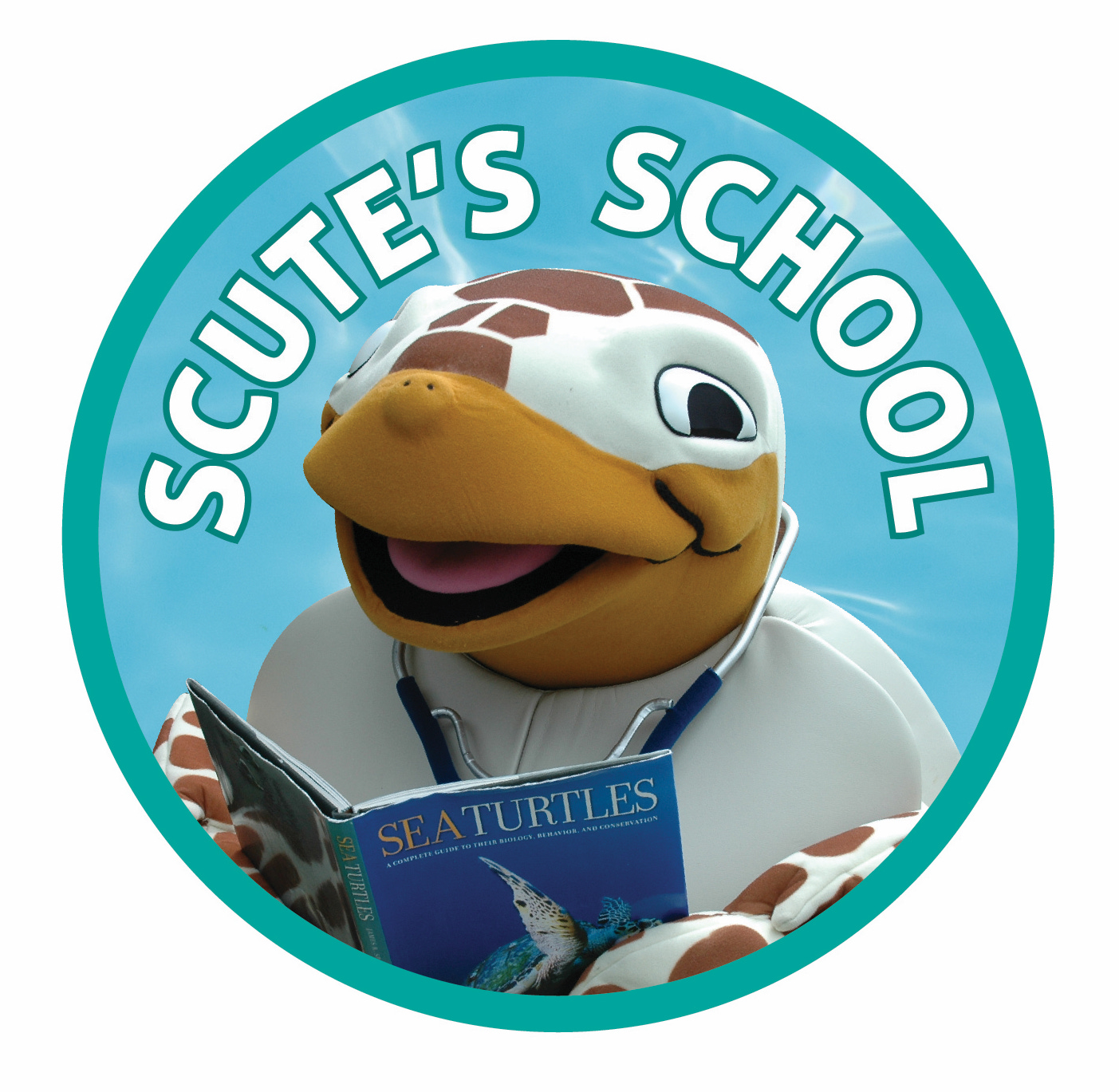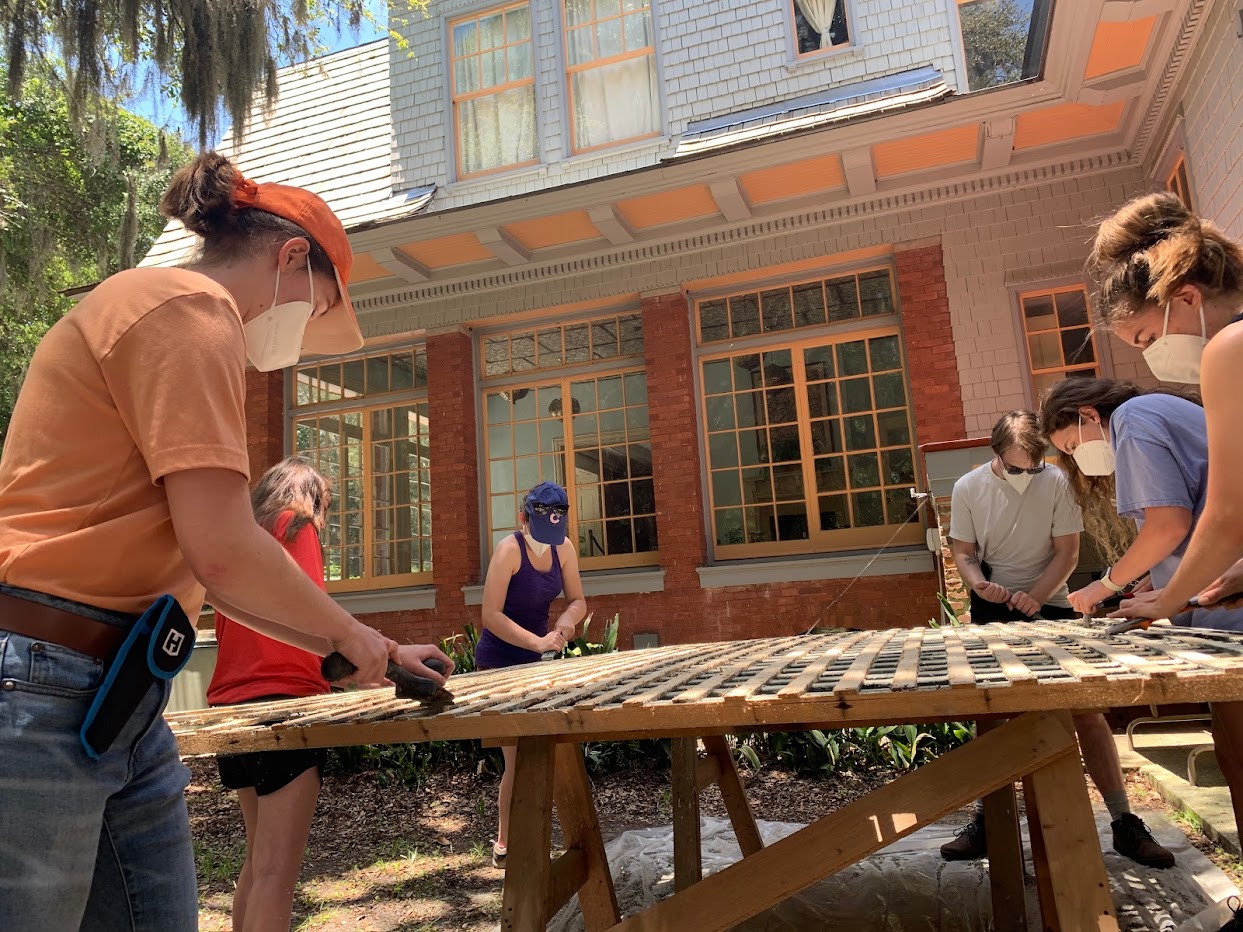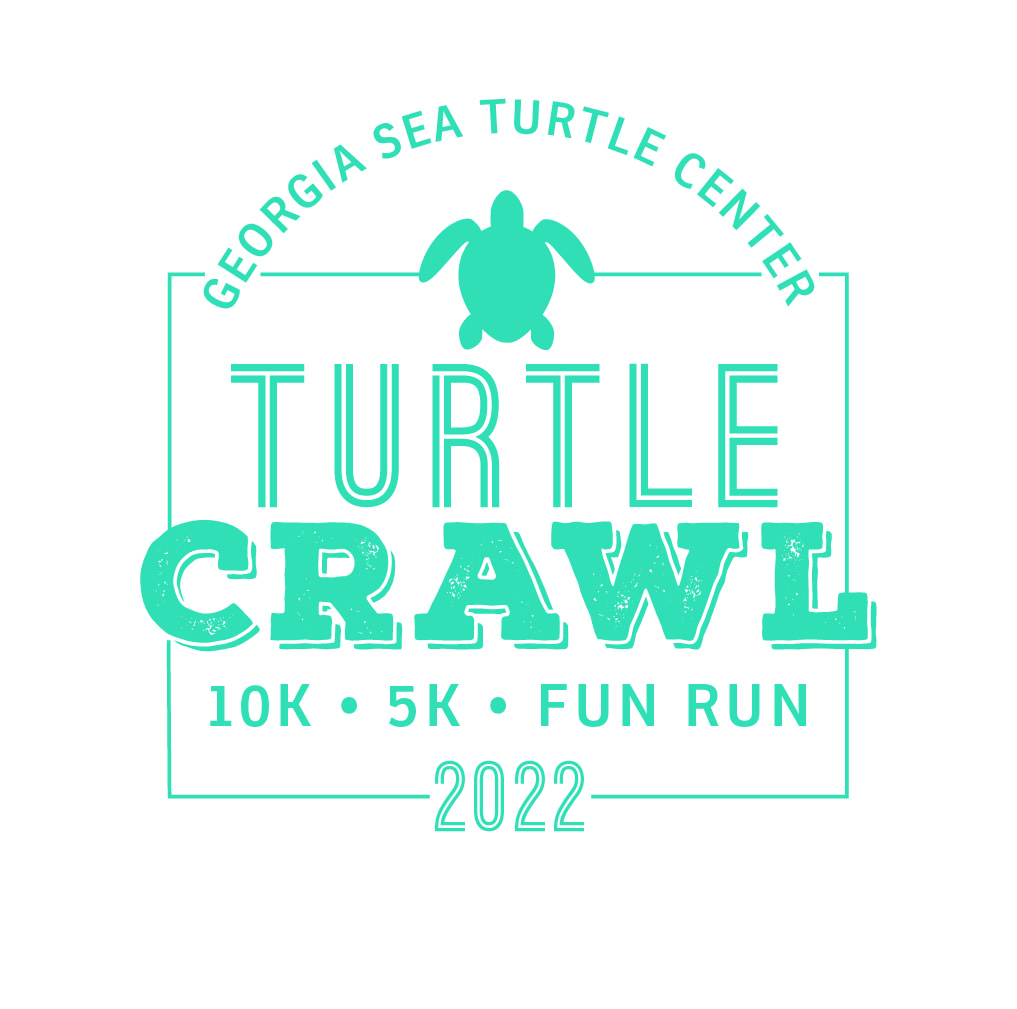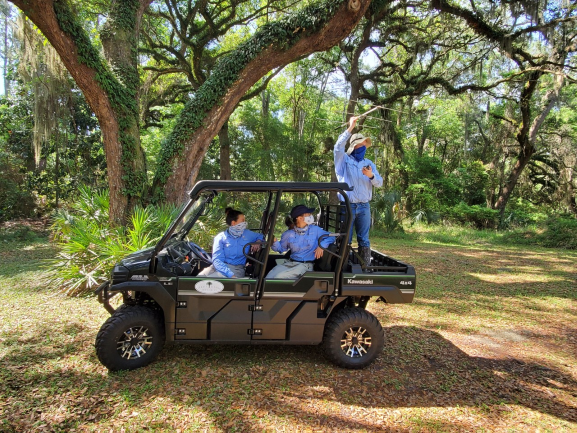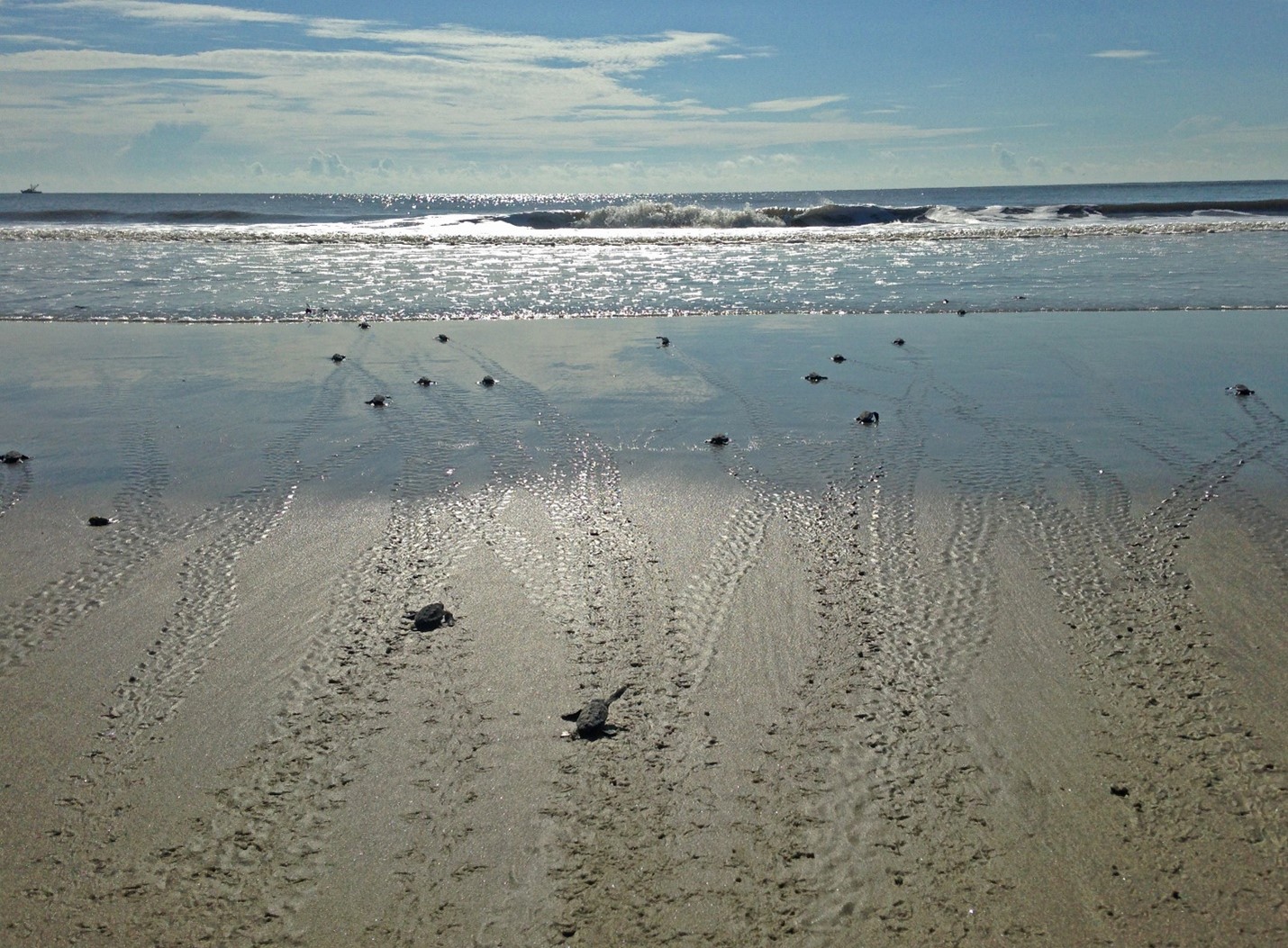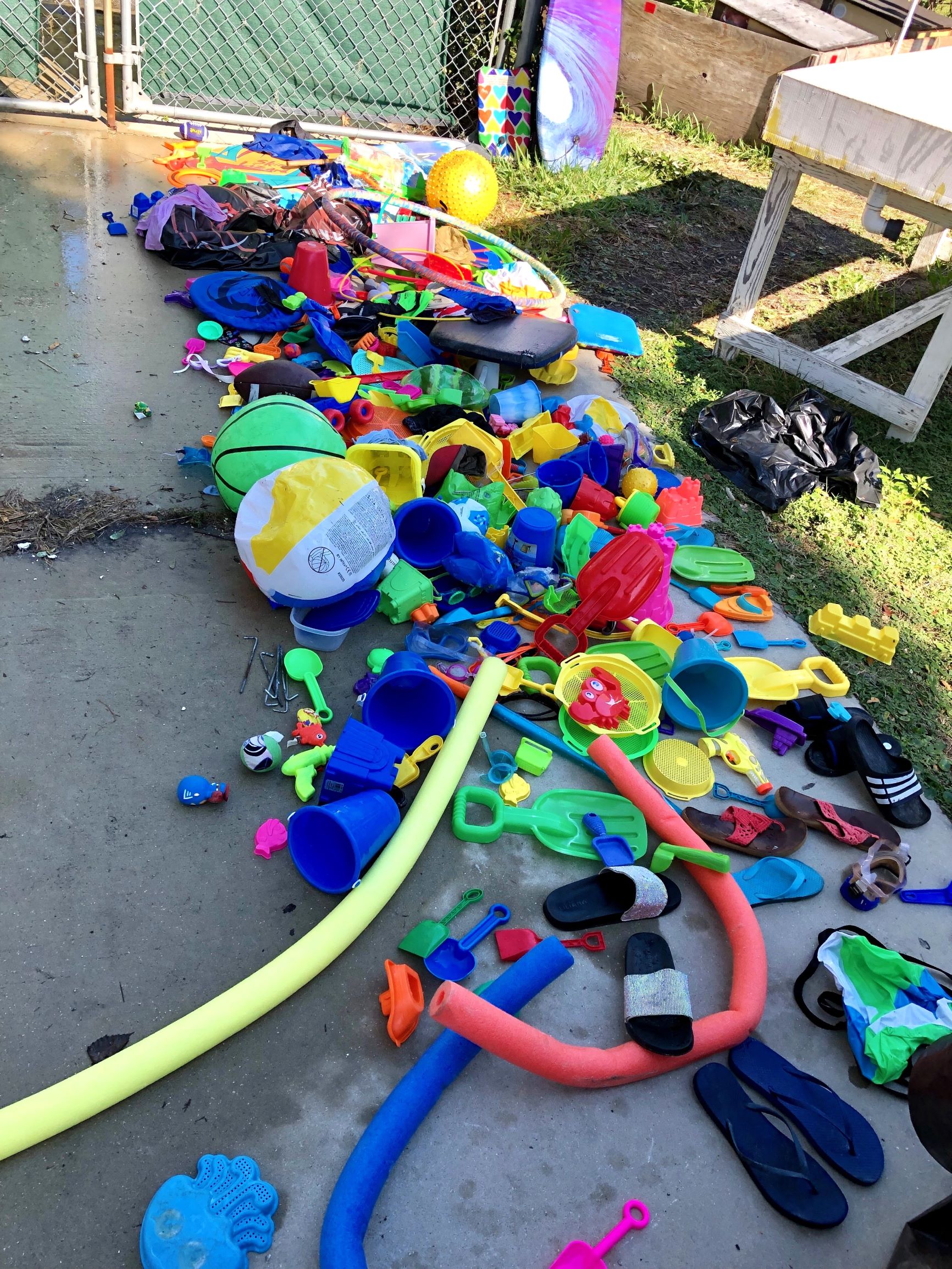By Nicole Thomas, Education Program Manager of the JIA’s Georgia Sea Turtle Center
Pillar #2: Education: Focus on the Human Animal
Education is interwoven through the framework of the GSTC’s mission. Each opportunity to 1) form a personal connection, 2) increase awareness of wildlife threats, and 3) inspire individuals to act is the heart of the work. As the world seemed to come to a halt in March 2020, the Education team seized the opportunity to reimagine the definition of personal connection and conservation action by meeting people where they were – at home. Scute’s School was fashioned as a new take on a standard practice. The GSTC has always been a resource for educators, but Scute’s School provided the opportunity to expand the Center’s online presence and create inclusive resources for all teachers, parents, and supporters.
For 50 straight days the education team developed and published a variety of interactive learning opportunities, which included crafts, videos, and updates on the rehabilitation and conservation of wildlife patients, reaching over one million people. Each activity was thoughtfully constructed to work for educators and families at home or in the traditional classroom.
Scute’s School is a testament to the team’s unyielding love for conservation and sincere desire to be a consistent source of educational information, encouraging a ripple effect of environmental stewardship. GSTC Educators were immediately flooded with notes of thanks and photos of kids participating in Scute’s School activities locally in Glynn County and across the country.
The real power of Scute’s School was brought to the Center in June 2021 by a family from Minnesota. Their two kids completed each of the activities and watched all of the videos which inspired them to write their own books. Prior to discovering Scute’s School, they had never heard of the GSTC or Jekyll Island. Because of Scute’s School, they planned their summer vacation around visiting Jekyll Island and sharing their books with GSTC staff. Everyone was incredibly touched and impressed with page after page of drawings illustrating sea turtle anatomy, life cycles, threats, and ways to help our ocean friends.
Their visit to Jekyll Island to share their new-found love of the GSTC was exactly why Scute’s School. It is amazing to see GSTC followers and supporters continue to carry the torch of the Center’s mission and work. Human connection is so important. Without the supporters who donate through the Jekyll Island Foundation and participate in events such as Turtle Crawl, tours like Turtles at Twilight, and programs like Adopt-a-Sea Turtle, the GSTC would not have the ability to reach so many hearts. It is the GSTC’s fundamental goal to share the message of hope and how actions make a true difference for our oceans and coastal wildlife.
To help support the ongoing work of the GSTC, click HERE.
Find Pillar #1 HERE, Pillar #3 HERE.
STAY TUNED
Next, we will dig deeper into Pillar #3 – Research – sharing the lessons we are learning and the mysteries we have yet to solve with Jekyll’s nesting sea turtles.
